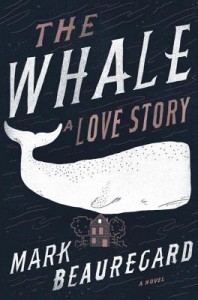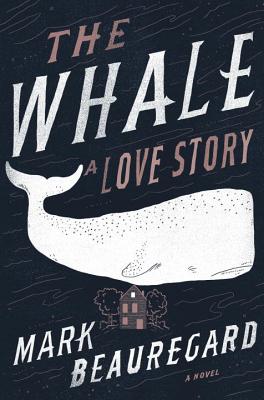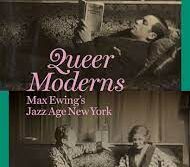 The Whale: A Love Story
The Whale: A Love Story
by Mark Beauregard
Viking. 281 pages, $26.
ON NOVEMBER 17, 1851, Herman Melville wrote a long letter to Nathaniel Hawthorne. Melville had recently given his friend a copy of Moby Dick and had received a letter describing Hawthorne’s very positive reaction to the novel. Melville’s reply is filled with unmistakably sexual imagery: I felt pantheistic then—your heart beat in my ribs and mine in yours, and both in God’s. … Whence come you, Hawthorne? By what right do you drink from my flagon of life? And when I put it to my lips—lo they are yours and not mine. … Ah! it’s a long stage, and no inn in sight, and night coming, and the body cold. But with you for a passenger, I am content and can be happy.”
Melville’s letter, in its entirety, forms the conclusion of The Whale, a novel based on the brief, intense relationship between the first truly great writers of fiction in America. Relying on biographies, critical studies, and the surviving letters and journals of Hawthorne, Melville, and their contemporaries, Mark Beauregard imagines the events and emotions that led to that November 17th letter, the last lengthy correspondence between the two men that survives.
Early in 1850 Hawthorne published The Scarlet Letter to great acclaim, and some censure, for its daring treatment of adultery. In August of that year he and Melville met for the first time when they, along with other literary figures, were guests at a picnic excursion to climb Monument Mountain near Stockbridge, Massachusetts. Melville had almost finished the first draft of a novel he called The Whale. His first two novels, Typee and Omoo, based on his experiences as a sailor in the South Seas, were publishing sensations as a result of their descriptions of lusty sailors cavorting with scantily clad islanders; but his next three novels of the sea sold poorly, and Melville was facing financial difficulties.
Scholars have long known that the conversation with Haw-thorne on Monument Mountain, and subsequent discussions about writing between the two men, prompted Melville to recast The Whale from a simple adventure story to the profound moral allegory it became: Moby Dick. In recent years, scholars have also acknowledged that there is plenty of evidence that Melville was physically attracted to men. Beauregard goes further. His novel is the story of a love affair between the two classic American writers that lasted from August 1850 to November 1851.
It is tempting to read this novel as the presentation of evidence about what really happened, but that would be a mistake. At Hawthorne’s request, Melville destroyed the letters from his friend, so there is little evidence that Hawthorne felt any attraction toward Melville. Beauregard incorporates several of Melville’s actual letters into the novel, but the letters from Hawthorne are inventions. The Whale must be judged as a work of the imagination. As such, it succeeds, primarily because Beauregard made the decision to tell the story from Melville’s point of view.
The Herman of the novel is physically vigorous, socially awkward, mentally intense, and personally flawed. He can be oblivious to the needs of his wife and family. He selfishly pursues his own interests, as when he improvidently buys a house he cannot afford in the Berkshires with his wife’s money, ostensibly so he can live near Nathaniel. As a writer, he is tormented by nothing less than a quarrel with God. But this Herman is also touchingly human when he falls under the sway of the beautiful Hawthorne, described as a delicate, soft, but still quite masculine man. This love inspires a passion in the younger man that he does not experience with his wife and which reduces him, at times, to helpless weeping.
Beauregard creates two scenes in which the reluctant Nathaniel briefly submits to Herman’s passion. Both times Nathaniel quickly draws back, unable to act on what he believes would be a betrayal of his wife and children. In the novel’s final scene, the two men have dinner in a hotel in Lenox. Nathaniel has made the decision to leave the Berkshires. Herman uses this occasion to give him a copy of Moby Dick, which is dedicated to Hawthorne. Before they part, Herman pleads with Nathaniel to acknowledge their love in words. Nathaniel believes it is enough that Herman knows this love exists. But the man who has just completed a masterpiece that will never be appreciated in his lifetime persists. Finally, Nathaniel says the words, and Herman replies “I love you, too, Nathaniel.”
Beauregard’s skill as a novelist is such that he describes the intellectual, emotional, and physical attraction between two 19th-century men in a way that’s both moving and convincing. The Whale demonstrates that sometimes the only way to reach the truth of the human heart, as when voices from the past have been silenced or lost, is through the storyteller’s imagination.
________________________________________________________
Daniel Burr, based in Covington, Kentucky, is a frequent GLR contributor.





